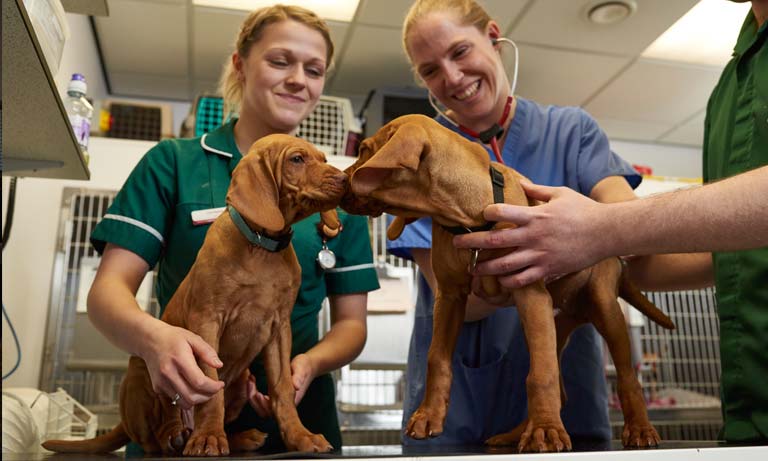Animal welfare
What’s the issue?
Animal welfare relates to an animal’s physical health and mental wellbeing. The OIE defines animal welfare as ‘the physical and mental state of an animal in relation to the conditions in which it lives and dies.’
Enhancing, protecting and securing the health and welfare of animals is the fundamental purpose of the veterinary profession. Animal welfare is a rapidly evolving social concern, and the veterinary profession plays a leading role in an interdisciplinary community seeking to promote the best interests of animals and improve their treatment, wherever they are used or impacted by people.
With developments in animal welfare science, we are now better able to characterise animal welfare, and frameworks for assessing and managing animal welfare have evolved.
Historically, animal welfare assessment and management has centred on identifying and minimising negative effects on animal welfare. More recently, animal welfare science has shifted towards models that strive not only to minimise negative welfare effects but also to maximise positive welfare effects. Such approaches recognise that animals used by humans should have, at least, ‘a life worth living’, with a growing number of animals having a ‘good life’.

What’s our view?
To have a ‘good life’, and at least a ‘life worth living’, animals must have the opportunity to have positive experiences. Over time, positive experiences should outweigh negative experiences. This should encompass the whole of an animal’s life.
Stakeholders can work together to protect, advocate and enhance animal welfare by:
- Using up-to-date concepts, tools and scientific approaches to assess animal welfare. This should include awareness and assessment of behaviour and mental wellbeing;
- Minimising negative welfare impacts and working towards positive welfare outcomes for all animals that are used for human benefit;
- Applying the principles of ethical wildlife control;
- Defining animal welfare in UK legislation in line with the Five Domains model of animal welfare assessment. This would provide recognition that management of welfare should not be limited to mitigating negative consequences, but also promoting positive experiences and enhancing welfare;
- Ensuring strong leadership from the veterinary profession at individual, community, national and international levels; and
- Enhancing veterinary undergraduate and post-graduate training in animal welfare science, ethics and law (AWSEL).
View our policy documents
Get involved
- Read the BVA Animal Welfare Strategy ‘Vets speaking up for animal welfare’, which provides a framework to help vets advocate good animal welfare outcomes for all animals.
- Contact the policy team for more information
